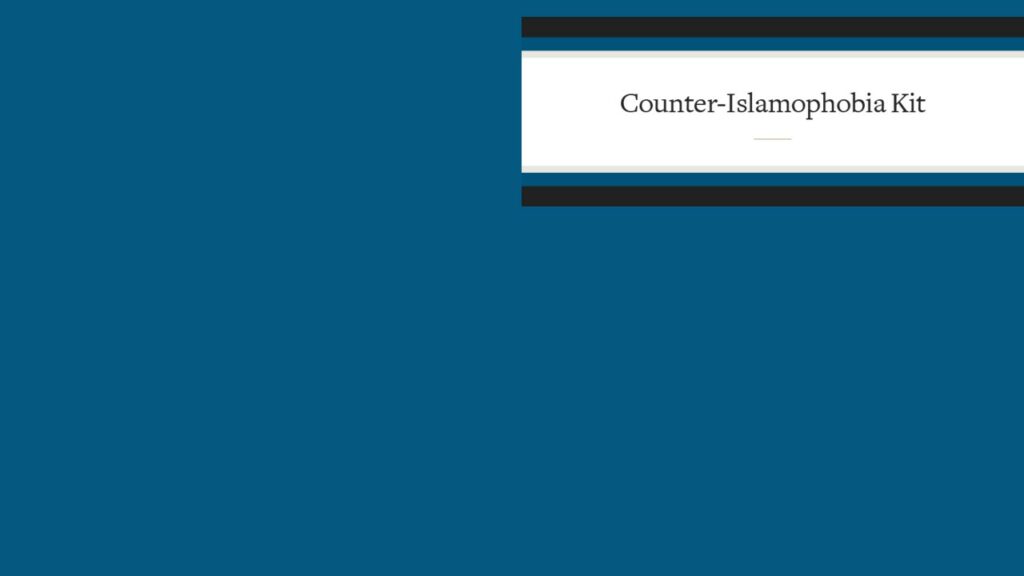This page provides the key documents, video and links in the Countering Islamophobic Narratives project (CIK) that was undertaken in 2017 – 2018.
The author of research on France was Dr. Andrea Bila*. Watch the research author Dr. Andrea Bila present their findings at the European Parliament in September 2018.
Workstream 1 looked at the Ten Dominant Narratives of Islamophobia in France, looking at the historical and contemporary roots of anti-Muslim thinking, policy and practice in the national context.
Several reports have confirmed the proliferation of anti-Muslim narratives across European countries (FRA 2016, Ameli, Merali 2015, Europol 2015). These narratives, based on anti-Muslim prejudice rooted in colonialism and racist and far-right ideologies, lead to exclusion, discrimination and Islamophobic incidents against individuals and places of worship. In this regard, France is no exception. Despite the decline in anti-Muslim acts observed in 2016, the figures confirm an overall upward trend observed since 2011: anti-Muslim incidents increased by 30% in 2011, by 28% in 2012, by 11.3% in 2013, decreased by 41% in 2014 and a phenomenal increase of 223% was registered in 2015 (CNCDH 2016). The month following the Charlie Hebdo shootings in January 2015 saw a 70% increase in acts of Islamophobia compared with the same period previous year (CCIF 2015). In addition, the violence of the incidents listed seems to have intensified (CNCDH 2016). Civil society has repeatedly issued warnings against the trivialisation of discourses that demonise Muslims and Islam (CCIF 2016).
Download it here [42 pages].
Read a short commentary and summary on those findings [external link] – French Muslims: a History of Incomplete Citizenship
Workstream 2 looked at the Ten Dominant Counter-Narratives of Islamophobia in France, based on interviews with practitioners, lawyers, academics, political actors, NGOs, journalists and others.
Several factors explain why the so-called ‘Muslim agenda’ is not receiving a proper treatment on the national level. First, as it was already explained in the Workstream 1 report, France has for a long time preferred the policy approach of assimilation, which does not recognise cultural heterogeneity of identities. As historian Suzanne Citron (2003) put it, “the history of France is not the memory of the difference of origins and cultures of the French people. Memory of the State integrates them by erasing them […].” The republican model of political representation favours colour-blindness, encouraging political parties and candidates to put forward shared republican values rather than ethnic agendas (Geisser 1997; Michon 2011; Tiberj & Michon 2013). This model, together with the principles of universalism and laïcité, prevents the French political candidates and elected officials from displaying cultural or religious differences and forces them to appear neutral. As a result, elected officials, especially those with minority background, seem to be reluctant to support what is generally perceived as partisan political matters and ethnic groups interests.
Download it here [37 pages].
Read a short commentary and summary on those findings here [external link] – Reversing the Trend: Countering Islamophobic Narratives in France
Workstream 3 is a summary report aimed at policymakers overviewing the findings and the actions needed to tackle Islamophobia. Download it here in English and here in French.
Return to the IHRC index.
* All views expressed are the author’s own and cannot be attributed to IHRC or the European Commission.







